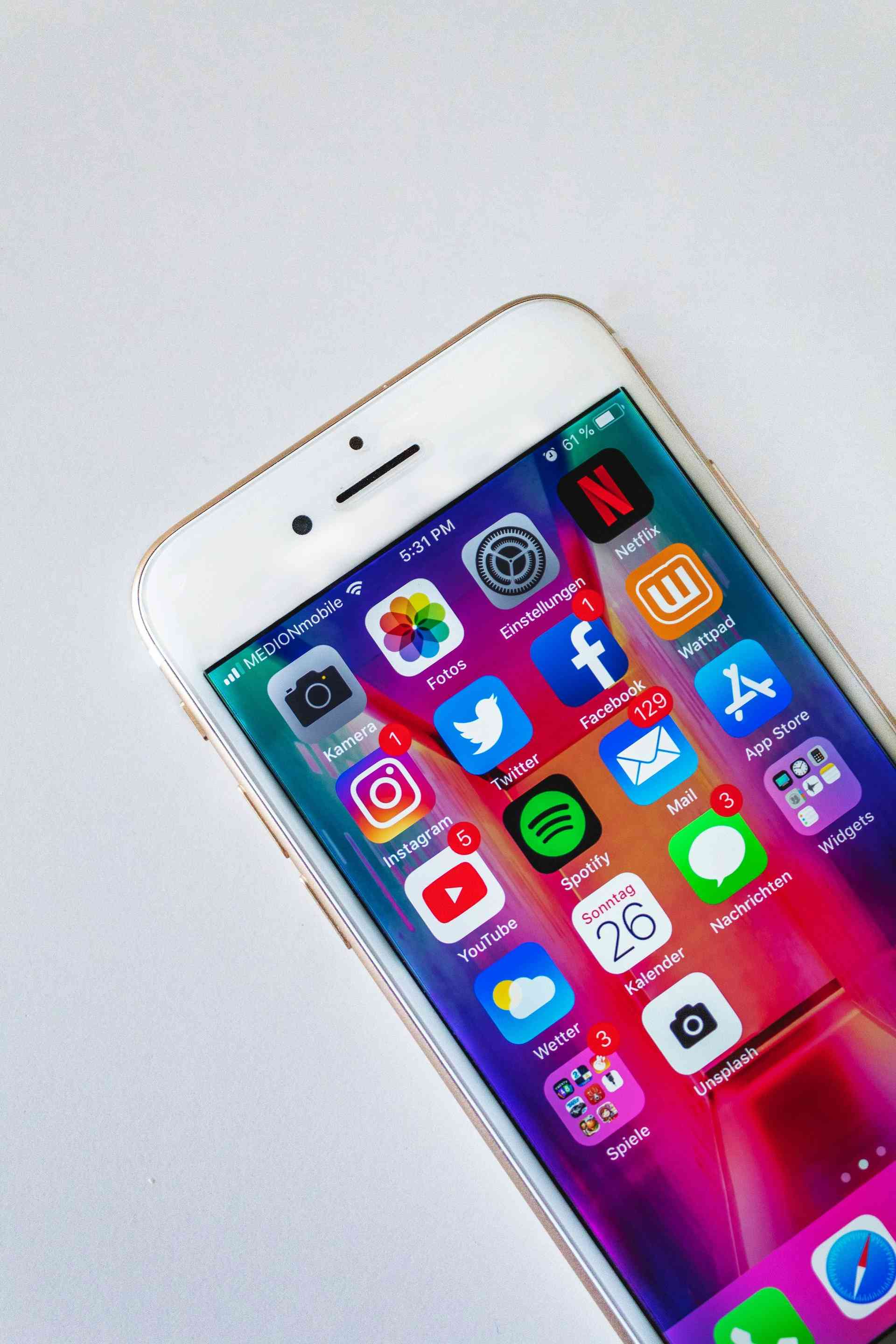In the era of hyper-connectivity, where social media platforms dominate our digital landscape, it's essential to scrutinize the not-so-glamorous side of the virtual realm. While these platforms promise instant connection and a window into the lives of others, the negative effects of social media are becoming increasingly evident, impacting mental health, straining relationships, and leaving a lasting mark on society.
Mental Health Deterioration
One of the most glaring concerns surrounding social media is its profound impact on mental health. Endless scrolling through curated feeds can contribute to feelings of inadequacy, fostering unrealistic standards and ideals. The constant comparison to others' seemingly perfect lives can lead to heightened levels of anxiety, depression, and a diminished sense of self-worth.
Moreover, the omnipresent nature of social media means that individuals are seldom granted a break from the virtual world. The fear of missing out (FOMO) and the pressure to constantly present an idealized version of one's life contribute to stress and emotional exhaustion. The relentless pursuit of validation through likes and comments further fuels a cycle of dependency, exacerbating mental health issues.
Fractured Relationships
While social media aims to connect people, it paradoxically can strain real-world relationships. The compulsive need to document every aspect of life for public consumption can lead to a detachment from the present moment. Couples may find themselves more immersed in crafting a picture-perfect online persona than in fostering genuine connections with each other.
The rise of social media-induced jealousy and distrust has become a common theme in romantic relationships. Suspicion arising from online interactions, perceived flirtations, or comparing one's partner to idealized images online can erode trust and destabilize relationships. The digital age's impact on relationships is a stark reminder that genuine human connections extend beyond the digital façade.
The Rise of Cyberbullying
As social media platforms burgeon, so does the prevalence of cyberbullying. The anonymity afforded by the virtual world emboldens individuals to engage in online harassment, spreading hate, and fostering a toxic environment. The consequences are severe, with victims experiencing emotional distress, anxiety, and, in extreme cases, even resorting to self-harm or suicide.
The constant exposure to a barrage of negative comments and cyberbullying creates a hostile online environment, particularly for vulnerable individuals. Despite efforts to combat cyberbullying, the ease with which harmful content can spread on social media poses a persistent threat to the well-being of users.
Societal Implications
Beyond individual well-being, social media's negative effects extend to societal dynamics. The propagation of misinformation and the amplification of polarizing viewpoints contribute to the polarization of society. Echo chambers, where individuals are exposed only to information that aligns with their existing beliefs, reinforce ideological divides and hinder constructive discourse.
The quest for online validation also fuels a culture of superficiality, where worth is measured by likes and followers rather than meaningful contributions to society. The constant pursuit of external validation may divert energy away from genuine personal growth and community engagement.
Erosion of Privacy
The pervasive nature of social media also poses a significant threat to personal privacy. Users willingly share vast amounts of personal information, from daily routines to intimate details, without fully grasping the potential consequences. This data becomes fodder for targeted advertisements, and in more nefarious cases, it can be exploited for identity theft, scams, or other malicious activities.
The erosion of privacy extends beyond individuals to societal implications. Governments and corporations leverage social media data for surveillance and profiling, raising concerns about the abuse of power and the infringement on civil liberties. The constant surveillance, both voluntary and involuntary, creates a society where privacy becomes a scarce commodity.
Unrealistic Beauty Standards
Social media platforms often perpetuate unrealistic beauty standards, promoting a narrow and unattainable ideal of beauty. Filters, editing tools, and photo manipulation contribute to the distortion of reality, leading individuals to develop distorted perceptions of their own bodies. This has led to a surge in body image issues, eating disorders, and a culture obsessed with appearance rather than authenticity.
The constant exposure to flawless images can negatively impact self-esteem, especially among impressionable youth who may internalize these ideals. The pursuit of an unattainable aesthetic can result in a never-ending cycle of comparison and dissatisfaction, contributing to mental health challenges.
Social Isolation and Paradoxical Connectivity
Despite the promise of connection, social media can paradoxically foster social isolation. Spending excessive time on digital platforms can lead to a disconnection from the physical world and genuine face-to-face interactions. The illusion of social connection through online platforms may replace meaningful relationships with shallow online interactions, leaving individuals feeling lonely and isolated.
Moreover, the pressure to maintain an idealized online persona can lead to a fear of vulnerability and authenticity. People may hesitate to share their true thoughts and feelings, perpetuating a culture of surface-level interactions and hindering the development of deep, meaningful connections.
Influence on Youth Development
The influence of social media on the developmental stages of children and adolescents is a growing concern. Young minds, still in the process of forming their identities, are particularly vulnerable to the curated content on these platforms. Exposure to unrealistic beauty standards, cyberbullying, and the constant pressure to conform to online trends can significantly impact their self-esteem and mental well-being.
Moreover, the addictive nature of social media, driven by the instant gratification of likes and comments, can interfere with the development of essential life skills. The constant need for external validation may hinder the ability to cope with real-world challenges, leading to anxiety and a diminished capacity for resilience.
Impact on Productivity and Focus
The ubiquity of social media also poses a threat to productivity and focus. The constant notifications, alerts, and the temptation to check social media feeds can disrupt work, studying, or any other task that requires concentration. The result is a society increasingly characterized by shortened attention spans and a reduced capacity for deep, uninterrupted work.
This phenomenon, known as "social media multitasking," has been shown to decrease overall productivity and hinder cognitive performance. The constant switching between tasks, fueled by the need to stay connected online, can contribute to stress and a sense of being overwhelmed.
Environmental Concerns
Beyond individual and societal impacts, the digital infrastructure supporting social media has significant environmental consequences. The massive data centers required to store and process the colossal amount of information generated by social media platforms consume vast amounts of energy. The carbon footprint associated with the servers, as well as the production and disposal of electronic devices, contributes to environmental degradation.
As the digital age advances, the environmental impact of social media cannot be ignored. Balancing the benefits of online connectivity with responsible environmental stewardship is a critical consideration for a sustainable future.
Ethical Considerations
The rise of social media has also brought forth ethical concerns related to the manipulation of information, spread of fake news, and the potential for political interference. The algorithms that govern content distribution on these platforms are designed to maximize user engagement, often at the expense of accuracy and objectivity.
The echo chambers created by personalized content feeds can lead to the reinforcement of biased perspectives, exacerbating societal divisions. The responsibility of social media companies to address misinformation, protect user privacy, and promote ethical behavior in the digital space is an ongoing challenge that demands increased scrutiny and accountability.
Final Thoughts: A Call for Digital Literacy and Responsibility
In conclusion, the negative effects of social media permeate various aspects of our lives, from mental health and relationships to privacy, productivity, and ethical considerations. Recognizing and addressing these challenges requires a collective effort from individuals, social media platforms, educators, and policymakers.
Promoting digital literacy, teaching responsible online behavior, and advocating for ethical standards in the development and use of social media platforms are essential steps toward mitigating the negative impacts. As we navigate the ever-evolving digital landscape, fostering a culture of mindfulness, empathy, and responsible digital citizenship is paramount for a healthier, more balanced relationship with social media.


































